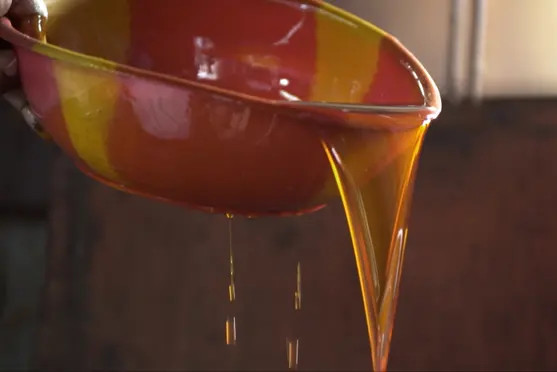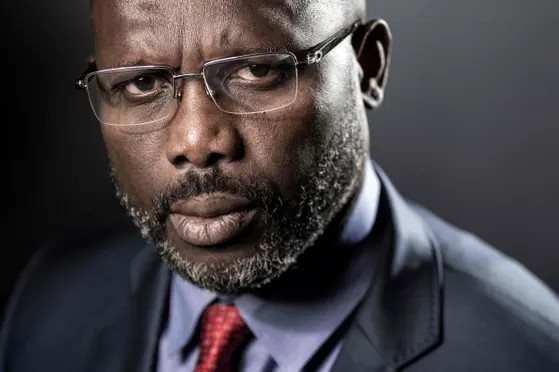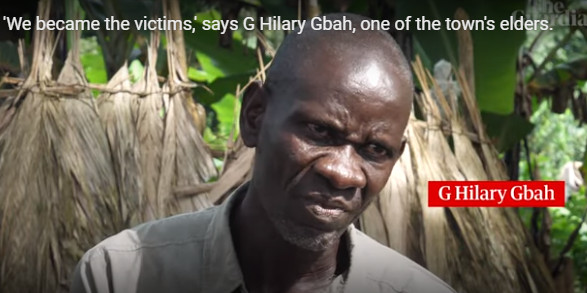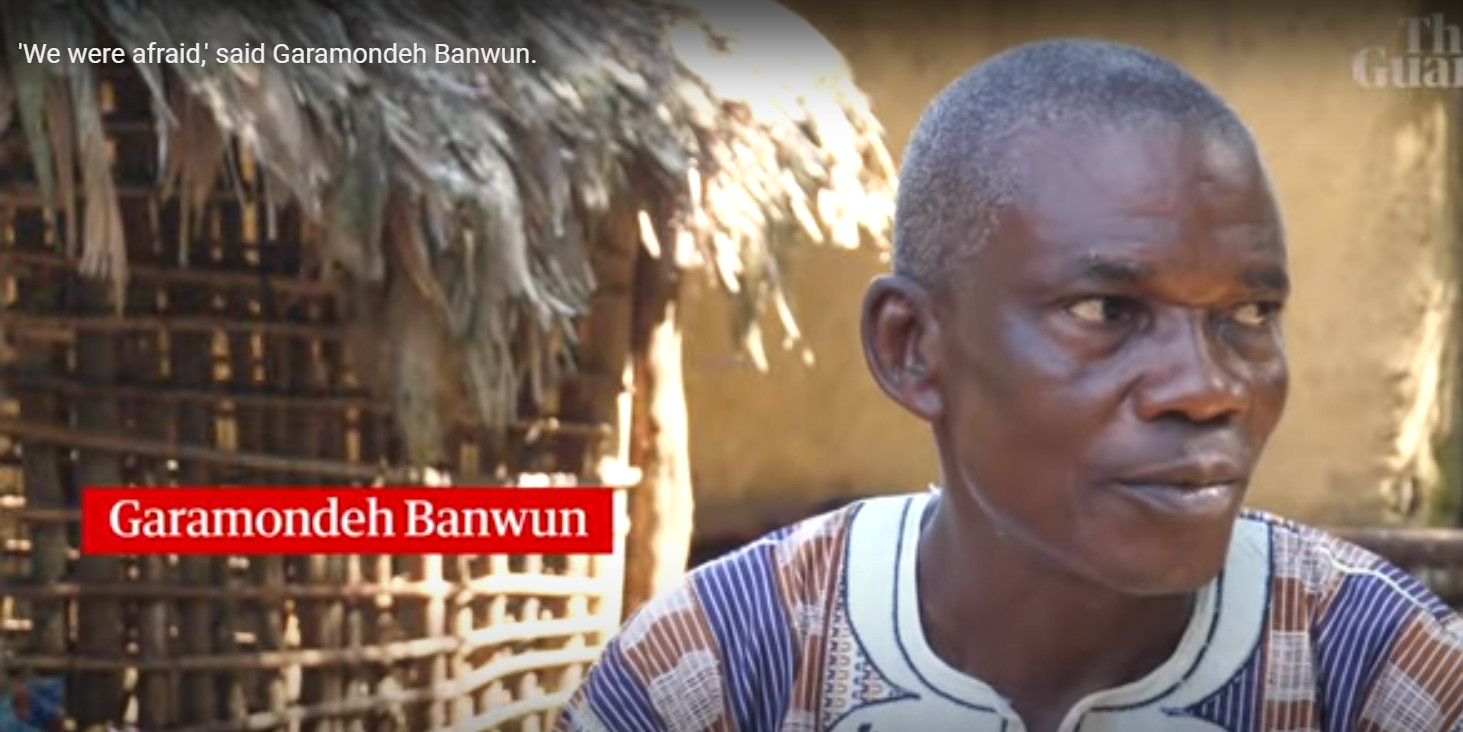
Date: 2026-03-03 Page is: DBtxt003.php txt00022413
PALM OIL
LIBERIA
Liberia's miracle oil brings farmers only empty promises ... Palm plantations are fuelling a booming international trade but the people who live on its edges feel forgotten
LIBERIA
Liberia's miracle oil brings farmers only empty promises ... Palm plantations are fuelling a booming international trade but the people who live on its edges feel forgotten

Liberian palm oil is proving lucrative for western companies. Photograph: Max Cutting/Banyak
Original article: https://www.theguardian.com/global-development/2020/jan/03/liberia-palm-oil-miracle-farmers-empty-promises
Burgess COMMENTARY
Ny connection with Liberia goes back to 1974 when William Tolbert was the President. At the time I was the CFO of Continental Seafoods Inc (CSF) based in Secausus, New Jersey USA and operating shrimp trawlers and conducting seafood operations in 28 jurisdications around the world. CSF operated a fleet of 18 trawlers in Liberia in cooperation with the Mesurado Group of Companies (Mesurado).
Fast forward almost 50 years, I find it very disappointing how the rich world has essentially given up on the poor world. The United States foreign policy establishment was very comrortable being critical of European colonialism, but the era of post colonialism promoted mainly by the United States has not been any better, in fact, objectively it has been considerably worse.
After 4 years, I left CSF and started working as an independent consultant. Some of my work took me back to Liberia for the World Bank and IFC where I got to work with LPMC (The Liberian Produce and Marketing Corporation) where the Managing Director was Joseph Boakai. While a lot of Government or State run organizations were dysfunctional around Africa, LPMC was well organized and well managed with effective reach into all areas of the country. A big part of this was attributable to Managing Director Boakai and also an international collaboration with the Danish company ?????. The World Bank was not happy with my report on LPMC because they were looking for a justification to privatize LPMC in accordance with the so-called Washington consensus of the time. My conclusion was that LPMC was operating as well as could be expected, and any changes were likely to disrupt what was a well functioning major enterprise.
One of the operating subsidiaries of LPMC was the Palm Oil unit which operated plantations as well as coordinating palm oil collection from small farmers. Compared to many agricultural marketing operations conducted by government entities, LPMC was delivering more value to the farmers and producers than most similar operations in Africa. Bottom line, The Managing Director Boakai and the Danish collaborators ran a corruption free operation in a region where this was more than a little unusual.
The assassination of President William Tolbert in April 1980 set off a spiral if national dysfunction. Some of the people who had some role in the successes of the Tolbert era have emerged in recent years as national leaders ... but huge damage was done following the 1980 coup, and it will take a long time to recover.
The following article suggests that colonial exploitaton continues albeit with different main actors and perhaps with a lot more lethality than in decades past. I have been committed to the idea of transparency and accountability since early in my career in the 1970s, and it is clearly needed even more today than it was 50 years ago !!!!!!!!!!
Peter Burgess
Palm plantations are fuelling a booming international trade but the people who live on its edges feel forgotten
Writen by Rob Davies in Grand Bassa @ByRobDavies
Fri January 3rd 2020 05.46 EST ... Accessed May 20th, 2022.
The sign at the entrance to the palm oil plantation in Grand Bassa has faded thanks to Liberia’s relentless cycle of scorching sun and torrential rain. Even so, it’s possible to make out the phrase: “Your community is rich: Let’s have a fair share.”
Several miles farther on, past endless rows of carefully cultivated palm trees, it’s a slogan that bears little relation to reality. Gbenee Town is a small huddle of huts surrounded by a plantation more than six times the size of London’s Richmond Park.
The townspeople say that the benefits of the plantation’s expansion have passed them by and they have been duped by a government that took the land they were living off and gave it to foreign investors.
“The level we’re living here is very deplorable,” says G Hilary Gbah, one of the town’s elders. “We are starving to death.”
Gbah, 54, remembers the arrival in 2012 of Equatorial Palm Oil, the London-headquartered company that owns the plantation. “We embraced the company because we wanted development,” he says, remembering the promises of schools and clinics if local people gave up land.
“We were expecting education for our children, employment, healthcare.”
He still has a dog-eared list distributed by Liberia’s government. It promised huge rewards if farmers agreed to the clearance of their land, at fixed amounts per plant for crops such as rubber and cassava. “They came and encouraged us … that if we gave them the land then they were going to develop it, all the crops that we had on the land they were going to pay good prices.”
Gbah – and many others – jumped at the chance. But when the time came for payment EPO handed over less than 10% of what they were expecting.
People talk of receiving $100 or less for the clearance of crops that could have sustained them for life. The clinics and schools never materialised. One local expert on community compensation, who asked not to be named, said the prices – promised by the government rather than the company – were always wildly unrealistic.
But those in nearby communities such as Blayah Town say they had no reason to doubt what they had been told. “They only fooled us and took our land,” says Gbah.
Now farmers who once grew their own crops rely on charity or the offer of work from friends in neighbouring towns.
The palm oil industry, meanwhile, is thriving. Oil milled from palm fruit is something of a miracle product that has become indispensable to billions of consumers around the world, spawning $60bn industry that continues to grow.
Palm oil is found in everything from chocolate to bread, cereal and shampoo. It keeps crisps crispy and stops ice-cream from melting. There is a global process designed to promote ethics in the industry – the Roundtable on Sustainable Palm Oil (RSPO) – but it has limited power to effect change.
Around the world palm oil continues to play a significant role in deforestation, threatening wildlife and fuelling the climate crisis. In rural Liberia, one of the world’s poorest countries, the immediate concern is the impact that the industry’s appetite for land is having on the people who live here.
For many people in Gbenee and nearby towns, land is the only thing of value that they have. Those who have given up their land, even after compensation offers were drastically reduced, say they did so for one reason alone: fear.
In communities from Blayah Town to Qwarkpojlian and Paye Town, elders and women’s representatives recount a similar story.
When EPO arrived in 2012 to survey the land it had been awarded by the government, local people concerned that they had not been consulted gathered to protest. The company’s representatives were accompanied by an armed police unit, a terrifying sight in a country still recovering from civil wars that left hundreds of thousands dead.
“Since the war finished in Liberia, that was the first day to see arms,” said Garamondeh Banwun. “We were afraid.” Banwun, like many people here, reports beatings handed out by police, some of whom – it is claimed – rode in EPO vehicles.
The company is keen to expand further in Grand Bassa but communities that were once open to development no longer trust the process to improve their lives. The alleged role of Liberia’s underesourced state in this dynamic is crucial.
While neighbouring Ivory Coast’s economy is the fifth fastest growing in the world, Liberia’s is forecast to shrink by 1.4% this year. The government’s annual budget is a paltry $570m. Former footballer George Weah swept to the presidency in 2017 but two years later optimism has given way to disillusionment among many of his supporters. Government employees are going without pay for up to four months at a time.

George Weah’s presidency has come under fire. Photograph: Joel Saget/AFP/Getty Images
Beyond long-established rubber plantations and some iron ore mining, there is no industry to pull Liberia out of its slump. Palm oil’s meteoric rise meant plantations have been seen as a huge opportunity. Little wonder that successive governments granted vast concessions, equivalent to around 25% of the country’s land mass, to companies in the rubber, logging and palm oil trades.
But the companies involved are struggling to develop in a way that benefits those whose ancestral land has been sold from beneath them.
Historically, few of these communities have been included in the proper consultation process that advocacy groups refer to as free, prior and informed consent (FPIC). James Otto represents the Sustainable Development Institute (SDI), a non-governmental organisation based in Liberia’s capital Monrovia with strong ties to palm oil communities.
“Companies continue to knowingly rob communities of their land and forest resources to their disadvantage – posing serious threats to their livelihoods and living spaces,” says Otto.
SDI wants communities to be properly consulted over the benefits they will receive – such as schools, clinics and employment – and is calling for signed memorandums of understanding. “Consistent failure of oil palm companies including EPO to fulfil their social and environmental commitments continues to weaken the trust of communities and has dented the opportunities of communities for development,” he says.
“Financiers of oil palm companies should ensure that the companies are in compliance with FPIC, respect labour rights and environmental standards.”
EPO, however, is not certified by the Roundtable on Sustainable Palm Oil.
SDI and the communities in Grand Bassa are not inherently opposed to the palm industry, which has the power to create jobs and help develop infrastructure. And there has been at least some progress in ensuring that communities have more robust powers to protect themselves.

The oil from palm fruits has become essential in the manufacture of products such as bread and chocolate. Photograph: Lai Seng Sin/Reuters
The Land Rights Act, which was passed last year, is key to that effort. It gives communities ownership of ancestral lands, allowing them to make demands of firms that want to exploit it. But it does not apply retroactively and, in a country with limited state presence, there are lingering doubts about whether it leads to the desired outcomes.
In some cases, the new law is having unintended consequences. A hundred miles south-east of Grand Bassa, down a mud-bath of a road lined with the rusting hulks of broken-down cars and trucks – lies the town of Shampee in Sinoe County. Here, EPO did bring benefits: employment and much-needed schools and clinics, staffed by teachers and nurses paid by the company.
But a protracted land dispute between neighbouring communities has deterred the company from further investment. Earlier this year it announced plans to pull out.
Like many of the staff in the clinic and school, midwife Caroline Weah was a contractor. She has worked in the company’s clinic for six years but has limited redundancy rights. What’s more, she says the company began slowing supplies to the clinic months ago.
“They usually gave us drugs every quarter,” she says. “From July we don’t have medicine so the patient load starts going down. Right now, no medicine. Somebody come, If I assess what they need, I don’t have it. I give them prescription and they’re not able to afford to buy.”
“What will become of the pregnant women and the children?”
EPO’s departure appears to have hit Shampee as hard as its arrival in Gbenee.
Such cases have convinced SDI that Liberia would be better off with smaller community-run plantations that could supply multinational firms’ thirst for palm oil and put the wealth into the community. This model, says Otto, is the “only hope for prosperity and development that recognises rights and protects the environment”.
Traidcraft Exchange, a UK-based campaign group, wants to see pressure applied through legal safeguards in markets such as the UK where demand for palm oil is created. “Things would have been very different if EPO had been required to consider the impact of these big land deals on local people,” said senior policy adviser Tom Wills. “That’s why Traidcraft Exchange and others are calling for new legislation that would make UK companies assess what risks they pose to human rights, and hold them to account in the courts for any abuses.”
Equatorial Palm Oil is listed on London’s Alternative Investment Market (Aim). Its ultimate majority owner is Malaysian firm Kuala Lumpur Kepong Berhad.
EPO declined to comment on the record. However, the company indicated that allegations about its role in violence by state police dated from some time ago. It also said it had been working hard to build consensus with local communities and indicated that the Liberian government had agreed to assume responsibility for the clinic in Shampee.
Guardian gobal development is supported by Bill and Melinda Gates Foundation

